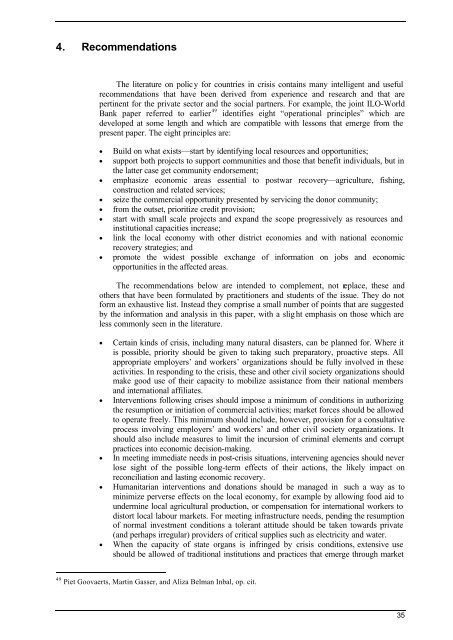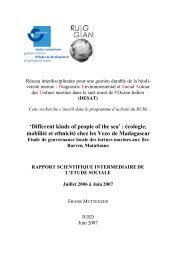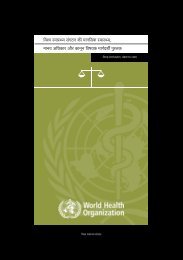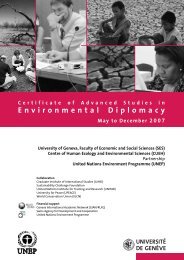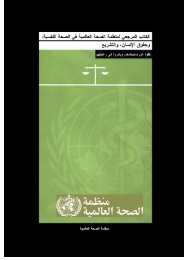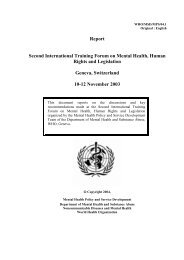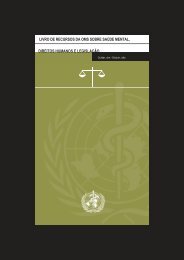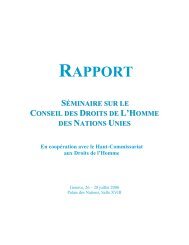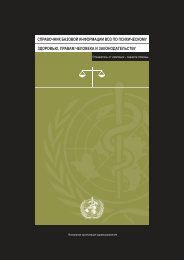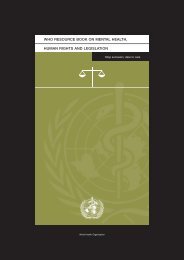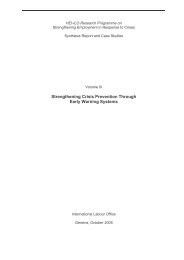Volume 1 Cedric - revised luca Final - RUIG-GIAN
Volume 1 Cedric - revised luca Final - RUIG-GIAN
Volume 1 Cedric - revised luca Final - RUIG-GIAN
You also want an ePaper? Increase the reach of your titles
YUMPU automatically turns print PDFs into web optimized ePapers that Google loves.
4. RecommendationsThe literature on policy for countries in crisis contains many intelligent and usefulrecommendations that have been derived from experience and research and that arepertinent for the private sector and the social partners. For example, the joint ILO-WorldBank paper referred to earlier 49 identifies eight “operational principles” which aredeveloped at some length and which are compatible with lessons that emerge from thepresent paper. The eight principles are:• Build on what exists—start by identifying local resources and opportunities;• support both projects to support communities and those that benefit individuals, but inthe latter case get community endorsement;• emphasize economic areas essential to postwar recovery—agriculture, fishing,construction and related services;• seize the commercial opportunity presented by servicing the donor community;• from the outset, prioritize credit provision;• start with small scale projects and expand the scope progressively as resources andinstitutional capacities increase;• link the local economy with other district economies and with national economicrecovery strategies; and• promote the widest possible exchange of information on jobs and economicopportunities in the affected areas.The recommendations below are intended to complement, not replace, these andothers that have been formulated by practitioners and students of the issue. They do notform an exhaustive list. Instead they comprise a small number of points that are suggestedby the information and analysis in this paper, with a slig ht emphasis on those which areless commonly seen in the literature.• Certain kinds of crisis, including many natural disasters, can be planned for. Where itis possible, priority should be given to taking such preparatory, proactive steps. Allappropriate employers’ and workers’ organizations should be fully involved in theseactivities. In responding to the crisis, these and other civil society organizations shouldmake good use of their capacity to mobilize assistance from their national membersand international affiliates.• Interventions following crises should impose a minimum of conditions in authorizingthe resumption or initiation of commercial activities; market forces should be allowedto operate freely. This minimum should include, however, provision for a consultativeprocess involving employers’ and workers’ and other civil society organizations. Itshould also include measures to limit the incursion of criminal elements and corruptpractices into economic decision-making.• In meeting immediate needs in post-crisis situations, intervening agencies should neverlose sight of the possible long-term effects of their actions, the likely impact onreconciliation and lasting economic recovery.• Humanitarian interventions and donations should be managed in such a way as tominimize perverse effects on the local economy, for example by allowing food aid toundermine local agricultural production, or compensation for international workers todistort local labour markets. For meeting infrastructure needs, pending the resumptionof normal investment conditions a tolerant attitude should be taken towards private(and perhaps irregular) providers of critical supplies such as electricity and water.• When the capacity of state organs is infringed by crisis conditions, extensive useshould be allowed of traditional institutions and practices that emerge through market49 Piet Goovaerts, Martin Gasser, and Aliza Belman Inbal, op. cit.35


